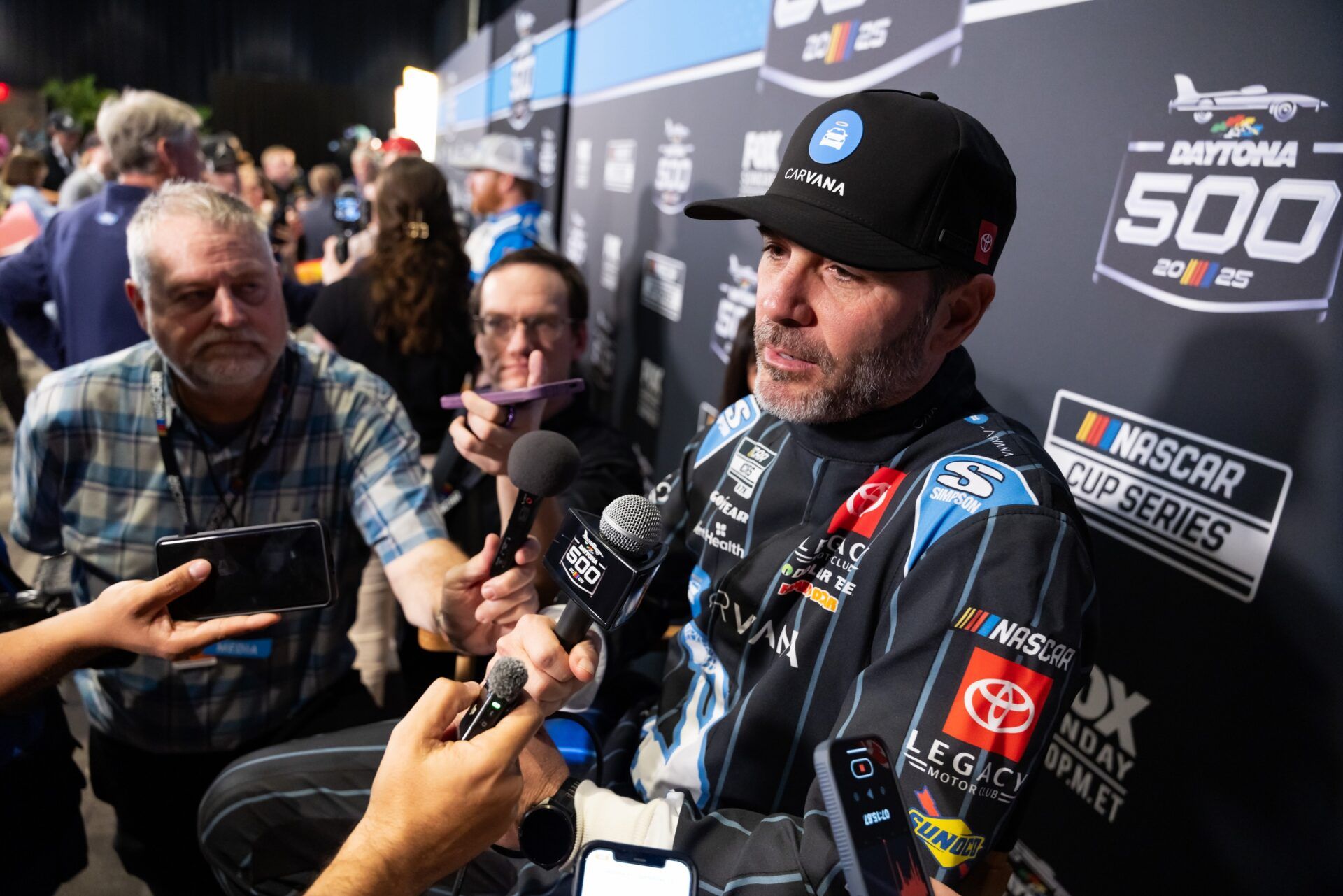A seismic shift in NASCAR’s disciplinary approach after Kyle Larson’s 2024 IndyCar incident has stirred debate in the garage and on the track. The new 2025 rule, which penalizes drivers requiring a waiver for non-medical reasons by stripping away all playoff points, has divided opinion.
While some grumble about a perceived hardening of standards, Erik Jones from Legacy Motor Club (LMC) delivered a refreshingly candid take on the change.
Erik Jones Backs Stricter Penalties for Non-Medical Absences
In an interview with Fox’s Bob Pockrass posted on X, Erik opened up about his view on NASCAR’s newest changes in the suspension rule recently issued. Jones opened his statement by questioning NASCAR for previously granting waivers without a meaningful cost. “Thought the guys getting waivers for suspensions at NASCAR and pose was a little silly. It didn’t make a lot of sense to me.”
For Jones, the logic behind the prior waiver system was flawed. By calling it “a little silly,” Jones implied that without consequences, drivers might risk reckless behavior knowing that suspensions could be cushioned by a waiver.
He added, “So, I think it’s good in some ways. I don’t know that there’s a negative yet that I can see. I’m sure some guys are not happy with it, but I’m not really a guy that’s gonna probably right rear someone into the wall. And if I did, I feel like I’d probably look back and say I deserve the penalty I got. So yeah, I think it’s a good thing.”
Erik Jones feels if someone gets suspended, the new rule where the waiver approval comes with a price — being stripped of all regular-season playoff points — is a good one. @NASCARONFOX pic.twitter.com/lkyE0xV67Y
— Bob Pockrass (@bobpockrass) February 11, 2025
In his view, tying the waiver to a significant price and losing all regular-season playoff points imposes a real consequence. Like him, the majority of drivers have taken a wait-and-see approach to this rule, trusting that the new penalty will discourage extreme actions. As Bob Pockrass’s tweet emphasized, Jones’ perspective is that “if someone gets suspended, the new rule where the waiver approval comes with a price is a good one.”
New Rules on Suspension Enforce Driver Integrity
Jones’ remarks cut to the heart of the matter: NASCAR’s decision to link waiver approvals with the loss of playoff points reinforces a simple yet fundamental principle that drivers must face the music for risky behavior. By imposing this price, NASCAR is placing a real cost on poor judgment.
It isn’t about being punitive for its own sake; it’s about ensuring that every driver is fully aware that the margin for error is slim. If you cause a suspension-worthy incident, you aren’t just sidelined for a race, you start the playoffs with nothing extra in your pocket.
This rule change is designed to bring order and consistency to the sport, and as Jones suggests, it might well curb the kind of reckless on-track behavior that has sometimes marred NASCAR’s image.
While some drivers might grumble about the new policy, Jones’ own disciplined approach stands as a testament to the rule’s merit. It’s a system that rewards accountability. If you commit an infraction, you pay the price, and if you race responsibly, you maintain your competitive edge.
Importantly, NASCAR has clarified that waivers for medical reasons, such as injuries, family emergencies, or age-related issues, will remain intact. Only non-medical waiver requests will trigger the loss of playoff points.

